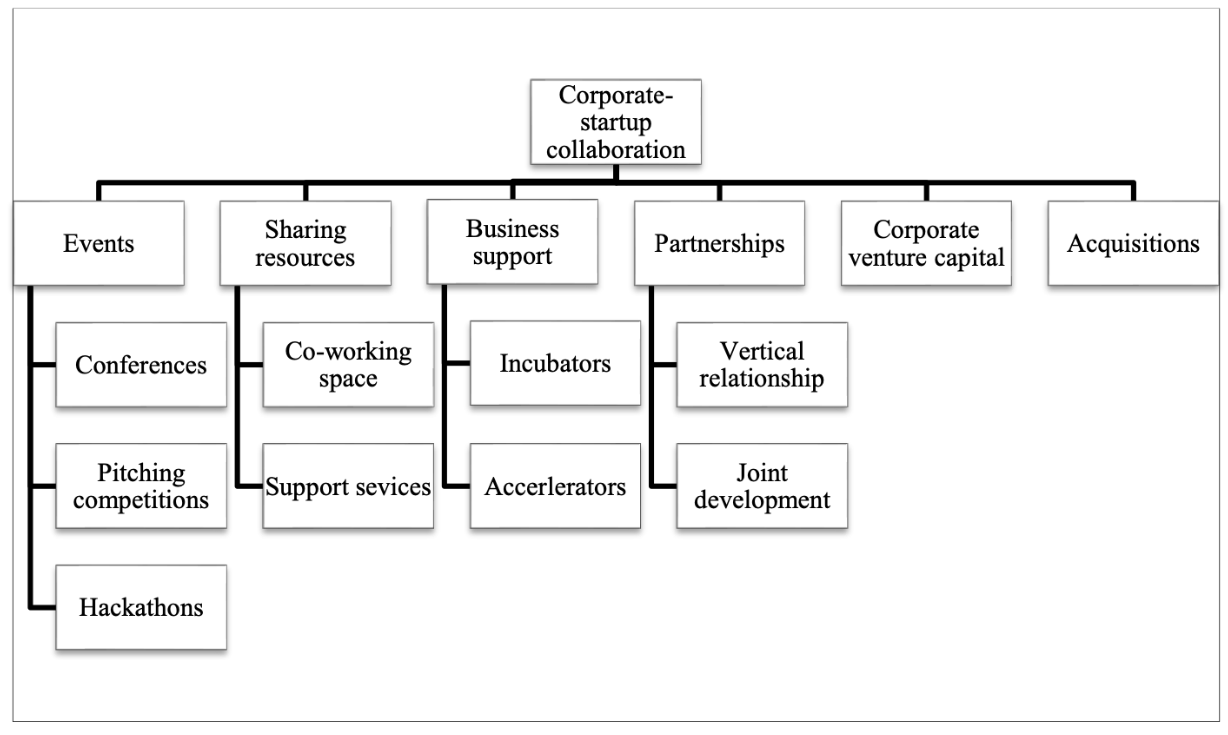startup qualification. startup qualification time. startup qualification. startup qualification. startup qualification time. startup qualification time. startup qualification. startup qualification. startup qualification time. startup qualification. startup qualification. startup qualification time. startup qualification. startup qualification.
In today’s fiercely competitive environment, being the earliest to seize fresh growth prospects – such as embracing new technologies, business models, or introducing novel offerings – can determine a company’s success or failure. However, achieving the necessary agility can be a hurdle within corporate environments governed by stringent rules and regulations. Consequently, numerous groundbreaking concepts and proposals often remain stagnant, never progressing beyond the conceptual stage.
In response, companies worldwide are forging partnerships with startups to swiftly access disruptive concepts, inventive business models, and state-of-the-art technologies with diminished risk. These alliances combine the strengths of established corporations – such as extensive resources and market presence – with startups’ agility, creativity, and rapidity.

Source: 24.kz.
A corporate-startup collaboration represents a strategic alliance between a well-established corporation and a dynamic, emerging startup. This symbiotic relationship involves a mutual exchange of resources, expertise, assets, and capabilities to achieve common business objectives, such as expansion and the exploration of new revenue streams.
Both parties contribute invaluable assets. Startups offer corporates access to leading-edge technologies, innovative business models, and fresh concepts. Corporates provide startups with the necessary funding and resources to accelerate their growth trajectory.
This partnership creates a synergistic blend, enabling each entity to pursue its growth aspirations with heightened agility and reduced risk compared to operating independently. Leveraging the external startup ecosystem empowers corporations to future-proof their operations, broaden revenue streams, and maintain a competitive edge in today’s volatile marketplace. Each collaborative venture serves as a testing ground, validating new technologies, models, products, and services within controlled environments.
Qualifying startups for collaboration efficiently involves a mix of strategic analysis, due diligence, and alignment with your corporate goals. Here is a structured approach you might consider, and Novable can help in every aspect of it.
Define your objectives. Clearly outline your corporate goals, challenges, and areas where collaboration with startups could provide innovative solutions or support. Identify specific criteria you are looking for in potential partners, such as technology expertise, market fit, scalability, cultural alignment, etc.
To do so, it is important to gain a better understanding of your competitive landscape. This research will help you find potential gaps, opportunities, and trends that can improve your collaboration strategy.
Screening process. Develop a screening process to evaluate startups against your defined criteria. This could involve an initial review of their pitch decks, websites, and online presence. Look for indicators of success and viability, such as traction, customer testimonials, team expertise, funding history, and partnerships.
What do you expect from them?
It is essential to establish your key criteria for startup selection.
Deep dive due diligence. For startups that pass the initial screening, conduct a deeper due diligence process. This may include meetings with the founding team, product demos, market analysis, financial review, and reference checks. Assess the startup’s technology roadmap, intellectual property, scalability, competitive landscape, and potential risks.
Alignment assessment. Evaluate how well each startup aligns with your corporate culture, values, and strategic direction. Consider factors like compatibility of working styles, communication preferences, and long-term vision. Assess whether the startup’s product or service fits seamlessly into your existing ecosystem or can fill a gap that’s critical to your business objectives.
Long-term relationship building. Look beyond the immediate collaboration and assess the potential for long-term partnership and mutual growth. Invest in building strong relationships with the startup founders and teams, fostering open communication, and providing support as needed.
Feedback and iteration. Continuously gather feedback from internal stakeholders, as well as from the startup partners, to refine your collaboration processes and improve outcomes. Be open to iterating on your selection criteria and adapting your approach based on lessons learned from previous collaborations.
By following these steps, you can streamline the process of qualifying startups for collaboration and increase the likelihood of finding partners that are well-aligned with your project and can contribute to its success.
They empower corporations to explore and penetrate new markets. Startups are at the forefront of emerging trends and consumer preferences. Corporations can harness this expertise to gain a competitive advantage and generate additional revenue.
They facilitate the development of fresh value propositions, leading to a stream of innovative offerings. Startups assist corporations in swiftly prototyping and testing new concepts, accelerating time-to-market compared to traditional corporate product development cycles.
They enable companies to monetise their industry expertise. Through collaboration with startups, corporations can leverage their existing resources to co-create inventive solutions, opening avenues for growth and increased revenue.
They expedite time-to-market and streamline the venture process. Startups’ agility allows them to rapidly test and refine new products or business models. Corporations can utilise this efficient approach to explore new markets or business models with reduced risk.
They cultivate a culture of innovation within corporations. Startup methodologies challenge conventional corporate practices, encouraging employees to think innovatively and embrace risk-taking, fostering an entrepreneurial atmosphere.
They attract entrepreneurial talent to companies. By engaging in collaborative ventures with startups, corporations provide opportunities for employees to participate in pioneering projects, such as introducing new offerings or utilising innovative technologies. This environment appeals to individuals with an entrepreneurial mindset.

Existing collaboration models arranged from the lowest to the highest level of engagement.
Source: Denysiuk, L. (2021). Success factors for corporate-startup collaboration.
Business support
Corporate accelerators and incubators provide startups with mentorship, business guidance, funding, and connections to investors and industry partners. The purpose is to support startups with the venture creation process, and bringing the idea to the market. In some aspects, in-house programs seem to better serve corporate innovation goals and objectives than traditional partnerships.
Partnerships
Partnerships can take a variety of forms. Procurement from startups and joint development are recognised as the two most attractive models.
Procuring from startups establishes a vertical collaboration wherein startups create products and services intended for supply to corporations. In this scenario, both parties collaborate on idea implementation, pooling physical and financial resources, and expertise. Ultimately, this collaboration culminates in a supplier-customer dynamic between the startup and the corporation.
Corporate partners derive advantages from procurement by accessing new and swift solutions to emerging business challenges. Procuring from startups allows corporations to deliver innovative offerings to their clientele more rapidly and cost-effectively, as it eliminates the need for extensive resource allocation to internal innovation. Conversely, startups benefit from securing an established organisation as a primary customer, paving the way for future opportunities.
Joint development entails closer cooperation in the sense that startups work together with corporations on product development. Here we refer to long-term collaborations directed to co-develop a product or a solution in-house. It represents a mutually beneficial solution as it effectively combines the innovative atmosphere of startups with the experience, resources, brand reputation, and customer base of established companies. Nonetheless, given that this model entails closer ties between corporations and startups, it naturally presents greater challenges to successful collaboration.
Corporate Venture Capital (CVC)
CVC units invest in startups not only for financial returns but also to foster growth beyond the parent company’s core business. These units strategically seek equity stakes in startups with innovative technologies or business models, leveraging them to penetrate new markets. It is the oldest form of open innovation. However, CVC is associated with a higher risk due to a high failure rate, which demands a better screening process and portfolio selection of scalable businesses.
A new concept connected to this is the Venture Client Unit. VCU enables corporations to act as early adopters of a startup’s product or service, supporting its development and refinement by offering valuable user feedback before it reaches full market maturity.
Acquisition
The acquisition of startups by partnering organisations marks the conclusion of the collaboration journey. This acquisition is anticipated to deliver significant value to the corporation, seizing business opportunities and fostering company growth through vertical integration. Nonetheless, certain practitioners have underscored that acquiring startups entails substantial risks and various complexities stemming from corporate structure and inflexibility.
Startups may well be the best future prediction engine ever developed. Innovation comes from small, agile organisations, from people taking risks and pushing boundaries forward. Startups are disrupting whole industries and changing the business landscape forever.
Corporations have long understood that turning to startups is now a mandatory exercise and a significant component of their innovation arsenal. We can expect to see even more partnerships and collaborations taking place between corporations and startups, as 80% of corporations are interested in knowing more about startups and pursuing a professional relationship with them (source: McKinsey & Co). Corporate venturing, a concept developed in the eighties, is now seeing an unprecedented rise. Novable contributes to this trend.